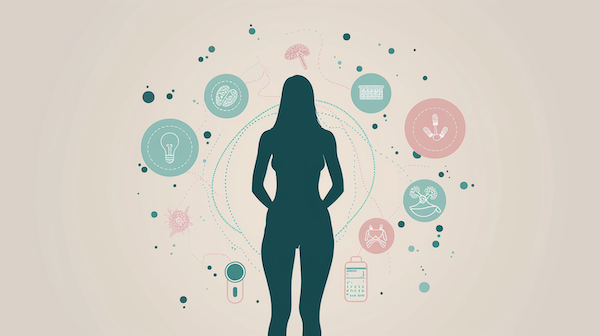Hormones from Testes: Understanding Male Endocrine Function
The testes, also known as testicles, are vital organs in the male reproductive system. While their primary function is to produce sperm, they also serve as an essential endocrine gland, secreting hormones that play crucial roles in male development, health, and reproduction.
This article delves into the hormones produced by the testes and their significance.
Primary Hormones Produced by the Testes
- Testosterone: The principal male sex hormone.
- Inhibin: A hormone that helps regulate follicle-stimulating hormone (FSH) production.
- Anti-Müllerian hormone (AMH): Crucial during fetal development.
Testosterone: The Key Player
Testosterone is the most well-known and abundant hormone produced by the testes. It belongs to a class of hormones called androgens and has wide-ranging effects on the male body:
- Development of male sexual characteristics during puberty
- Maintenance of muscle mass and bone density
- Regulation of sex drive (libido)
- Sperm production
- Influence on mood and cognitive function
- Role in fat distribution and metabolism
The Testosterone Production Process
Testosterone production is regulated by the hypothalamic-pituitary-gonadal (HPG) axis:
- The hypothalamus releases gonadotropin-releasing hormone (GnRH).
- GnRH stimulates the pituitary gland to produce luteinizing hormone (LH) and follicle-stimulating hormone (FSH).
- LH stimulates the Leydig cells in the testes to produce testosterone.
- FSH, along with testosterone, stimulates sperm production in the seminiferous tubules.
Inhibin: The Regulator
Inhibin is produced by the Sertoli cells in the testes and plays a crucial role in the negative feedback loop of the HPG axis:
- It suppresses the production of FSH by the pituitary gland.
- This helps maintain the balance of hormones necessary for optimal sperm production.
Anti-Müllerian Hormone (AMH)
AMH is primarily produced during fetal development and early infancy:
- It causes the regression of Müllerian ducts, which would otherwise develop into female reproductive organs.
- In adult males, AMH is produced in small amounts and its role is less understood.
Hormonal Imbalances and Health Issues
Disruptions in testicular hormone production can lead to various health issues:
- Low testosterone (hypogonadism): Can cause decreased libido, erectile dysfunction, reduced muscle mass, and mood changes.
- High testosterone: While less common, it can lead to aggressive behavior, acne, and in some cases, infertility.
- Imbalances in inhibin: May affect sperm production and fertility.
It's worth noting that hormonal imbalances can sometimes cause symptoms that might be mistaken for other conditions. For instance, some men with hormonal issues might experience abdominal or back pain, similar to the back pain associated with ovarian cysts in women.
However, the underlying causes are quite different.
Factors Affecting Testicular Hormone Production
Several factors can influence the production of hormones in the testes:
- Age
- Stress
- Diet and exercise
- Environmental toxins
- Certain medications
- Medical conditions (e.g., obesity, diabetes)
Maintaining Hormonal Health
To support healthy testicular function and hormone production:
- Maintain a balanced diet rich in nutrients
- Exercise regularly
- Manage stress levels
- Get adequate sleep
- Limit alcohol consumption
- Avoid smoking and excessive drug use
When to Seek Medical Advice
Consult a healthcare provider if you experience:
- Significant changes in libido or sexual function
- Unexplained fatigue or mood changes
- Sudden changes in muscle mass or body fat distribution
- Fertility issues
Conclusion
The testes play a crucial role in male health through their production of hormones, particularly testosterone. Understanding these hormones and their functions can help men maintain their health and seek appropriate care when needed.
Regular check-ups and open communication with healthcare providers are key to managing hormonal health effectively.
How This Article Was Made
This article was created using current medical knowledge about male reproductive endocrinology. Information was gathered from reputable medical journals, endocrinological studies, and guidelines from men's health organizations.
While every effort has been made to ensure accuracy, always consult with a healthcare professional for personalized medical advice.

Community Comments
Community Comments
Add a comment